-
 Potrivit dispozițiilor art. 21 alin. (1) din O.G. nr. 25/2002 privind unele mãsuri pentru monitorizarea postprivatizare a contractelor de vânzare-cumpãrare de acțiuni deținute de stat la societãțile comerciale, în cazul desființãrii contractului pe cale convenționalã sau judiciarã, Autoritatea va reține de la cumpãrãtor toate sumele achitate de acesta în contul contractului, reprezentând, dupã caz, avans, rate, dobânzi, penalitãți achitate cu orice titlu pânã la desființarea acestuia.
Potrivit dispozițiilor art. 21 alin. (1) din O.G. nr. 25/2002 privind unele mãsuri pentru monitorizarea postprivatizare a contractelor de vânzare-cumpãrare de acțiuni deținute de stat la societãțile comerciale, în cazul desființãrii contractului pe cale convenționalã sau judiciarã, Autoritatea va reține de la cumpãrãtor toate sumele achitate de acesta în contul contractului, reprezentând, dupã caz, avans, rate, dobânzi, penalitãți achitate cu orice titlu pânã la desființarea acestuia. -
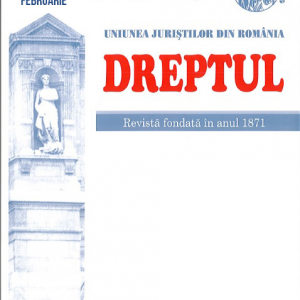 Actul emis de Oficiul Român pentru Drepturile de Autor (ORDA) în vederea convocării părților în procedura arbitrală potrivit art. 1312 alin. (4) din Legea nr. 8/1996 nu are caracterul juridic al unui act administrativ în sensul art. 2 alin. (1) lit. c) din Legea nr. 554/2004. În succesiunea operațiunilor prin care se realizează negocierea metodologiilor la care se referă art. 130, 131, 1311 și 1312 din Legea nr. 8/1996, actul care produce efecte juridice îl reprezintă metodologiile negociate, iar activitățile anterioare, premergătoare, au valoarea juridică a unor operațiuni administrative sau simple operațiuni materiale care pregătesc, însoțesc adoptarea actului producător de efecte juridice. (Înalta Curte de Casație și Justiție, Secția de contencios administrativ și fiscal, Decizia nr. 59 din 10 ianuarie 2013)
Actul emis de Oficiul Român pentru Drepturile de Autor (ORDA) în vederea convocării părților în procedura arbitrală potrivit art. 1312 alin. (4) din Legea nr. 8/1996 nu are caracterul juridic al unui act administrativ în sensul art. 2 alin. (1) lit. c) din Legea nr. 554/2004. În succesiunea operațiunilor prin care se realizează negocierea metodologiilor la care se referă art. 130, 131, 1311 și 1312 din Legea nr. 8/1996, actul care produce efecte juridice îl reprezintă metodologiile negociate, iar activitățile anterioare, premergătoare, au valoarea juridică a unor operațiuni administrative sau simple operațiuni materiale care pregătesc, însoțesc adoptarea actului producător de efecte juridice. (Înalta Curte de Casație și Justiție, Secția de contencios administrativ și fiscal, Decizia nr. 59 din 10 ianuarie 2013) -

-
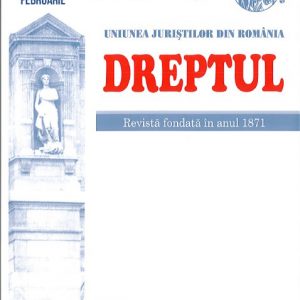 În cazul în care prin acțiunea introductivă promitentul-cumpărător a solicitat numai restituirea avansului achitat în temeiul antecontractului de vânzare-cumpărare și dobânda legală aferentă, nesolicitând și constatarea intervenirii pactului comisoriu expres stipulat de părțile contractante cu consecința repunerii părților în situația anterioară sau rezoluțiunea judiciară a convenției, în temeiul art. 1020–1021 C.civ., este lipsit de fundament juridic demersul său, astfel cum a fost formulat, deoarece numai în caz de desființare a convenției se poate dispune obligarea părții în privința căreia angajamentul nu s-a executat la daune-interese. (Înalta Curte de Casație și Justiție, Secția a II-a civilă, Decizia nr. 3261 din 24 octombrie 2014)
În cazul în care prin acțiunea introductivă promitentul-cumpărător a solicitat numai restituirea avansului achitat în temeiul antecontractului de vânzare-cumpărare și dobânda legală aferentă, nesolicitând și constatarea intervenirii pactului comisoriu expres stipulat de părțile contractante cu consecința repunerii părților în situația anterioară sau rezoluțiunea judiciară a convenției, în temeiul art. 1020–1021 C.civ., este lipsit de fundament juridic demersul său, astfel cum a fost formulat, deoarece numai în caz de desființare a convenției se poate dispune obligarea părții în privința căreia angajamentul nu s-a executat la daune-interese. (Înalta Curte de Casație și Justiție, Secția a II-a civilă, Decizia nr. 3261 din 24 octombrie 2014) -
 O cerere în constatare vizând obținerea unei hotãrâri judecãtorești care sã fie opusã organelor fiscale și în temeiul cãreia sã se beneficieze de scutiri la plata impozitelor pe terenuri și clãdiri nu poate fi primitã întrucât art. 111 C.pr.civ. condiționeazã formularea acțiunii în constatare de inexistenþa unei acțiuni în realizare (Înalta Curte de Casație și Justiție, Secția comercialã, decizia nr. 952 din 9 martie 2010).
O cerere în constatare vizând obținerea unei hotãrâri judecãtorești care sã fie opusã organelor fiscale și în temeiul cãreia sã se beneficieze de scutiri la plata impozitelor pe terenuri și clãdiri nu poate fi primitã întrucât art. 111 C.pr.civ. condiționeazã formularea acțiunii în constatare de inexistenþa unei acțiuni în realizare (Înalta Curte de Casație și Justiție, Secția comercialã, decizia nr. 952 din 9 martie 2010). -
 În funcție de întinderea efectelor juridice pe care le produc, actele administrative se clasifică în acte normative și acte individuale. Încadrarea unui act infralegislativ într-una dintre cele două categorii mai sus arătate nu se realizează prin „decuparea” unor dispoziții din acel act, afectând în acest mod caracterul unitar al acestuia, ci prin examinarea integrală a conținutului său, prin prisma trăsăturilor fiecăreia dintre categoriile în discuție (acte normative și acte individuale). Cu alte cuvinte, un act administrativ este fie normativ, fie individual, în funcție de întinderea efectelor juridice pe care le produce ca întreg, indiferent de conținutul concret al unei părți (de exemplu al unei anexe) a acestuia. (Înalta Curte de Casație și Justiție, Secția de contencios administrativ și fiscal, Decizia nr. 1718 din 26 februarie 2013)
În funcție de întinderea efectelor juridice pe care le produc, actele administrative se clasifică în acte normative și acte individuale. Încadrarea unui act infralegislativ într-una dintre cele două categorii mai sus arătate nu se realizează prin „decuparea” unor dispoziții din acel act, afectând în acest mod caracterul unitar al acestuia, ci prin examinarea integrală a conținutului său, prin prisma trăsăturilor fiecăreia dintre categoriile în discuție (acte normative și acte individuale). Cu alte cuvinte, un act administrativ este fie normativ, fie individual, în funcție de întinderea efectelor juridice pe care le produce ca întreg, indiferent de conținutul concret al unei părți (de exemplu al unei anexe) a acestuia. (Înalta Curte de Casație și Justiție, Secția de contencios administrativ și fiscal, Decizia nr. 1718 din 26 februarie 2013) -
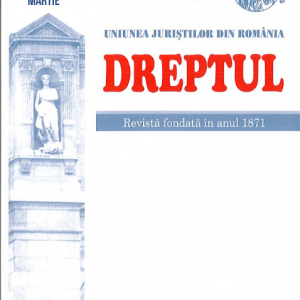 Din economia dispozițiilor art. 1349 din noul Cod civil reiese faptul că orice persoană are îndatorirea să respecte regulile de conduită pe care legea sau obiceiul locului le impune și să nu aducă atingere, prin acțiunile ori inacțiunile sale, drepturilor sau intereselor legitime ale altor persoane; cel care, având discernământ, încalcă această îndatorire răspunde de toate prejudiciile cauzate, fiind obligat să le repare integral.
Din economia dispozițiilor art. 1349 din noul Cod civil reiese faptul că orice persoană are îndatorirea să respecte regulile de conduită pe care legea sau obiceiul locului le impune și să nu aducă atingere, prin acțiunile ori inacțiunile sale, drepturilor sau intereselor legitime ale altor persoane; cel care, având discernământ, încalcă această îndatorire răspunde de toate prejudiciile cauzate, fiind obligat să le repare integral. -
 Clauza de dezicere inserată într-un antecontract de vânzare-cumpărare, prin care s-a prevăzut posibilitatea de răzgândire a promitentei-vânzătoare din motive subiective, rămâne fără efecte în situația decesului acesteia, neputând fi invocată de moștenitori. Și aceasta întrucât dreptul astfel prevăzut în favoarea promitenteivânzătoare are un caracter strict personal, iar datorită acestei caracteristici acest drept este incesibil, adică netransmisibil moștenitorilor, putând fi exercitat numai de către titular.
Clauza de dezicere inserată într-un antecontract de vânzare-cumpărare, prin care s-a prevăzut posibilitatea de răzgândire a promitentei-vânzătoare din motive subiective, rămâne fără efecte în situația decesului acesteia, neputând fi invocată de moștenitori. Și aceasta întrucât dreptul astfel prevăzut în favoarea promitenteivânzătoare are un caracter strict personal, iar datorită acestei caracteristici acest drept este incesibil, adică netransmisibil moștenitorilor, putând fi exercitat numai de către titular. -
 Acțiunea în daune-interese care vizeazã antrenarea rãspunderii civile delictuale a AVAS în temeiul art. 998-999 C.civ. nu atrage aplicarea dispozițiilor legii speciale cu privire la competența curții de apel în primã instanțã, ci pe cele ale art. 1 pct. (1) lit. a) din Codul de procedurã civilã, fiind vorba despre un litigiu patrimonial de drept comun (Înalta Curte de Casație Justiție, Secția comercialã, decizia nr. 1896 din 21 mai 2010).
Acțiunea în daune-interese care vizeazã antrenarea rãspunderii civile delictuale a AVAS în temeiul art. 998-999 C.civ. nu atrage aplicarea dispozițiilor legii speciale cu privire la competența curții de apel în primã instanțã, ci pe cele ale art. 1 pct. (1) lit. a) din Codul de procedurã civilã, fiind vorba despre un litigiu patrimonial de drept comun (Înalta Curte de Casație Justiție, Secția comercialã, decizia nr. 1896 din 21 mai 2010). -
 LEGEA NR. 10/2001. ACŢIUNE AVÂND CA OBIECT RESTITUIREA PREÞULUI IMOBILULUI PLÃTIT DE CHIRIAŞII ALE CÃROR CONTRACTE DE VÂNZARE-CUMPÃRARE, ÎNCHEIATE POTRIVIT PREVEDERILOR LEGII NR. 112/1995, AU FOST LIPSITE DE EFECTE JURIDICE Dispoziţiile art. 501 din Legea nr. 10/2001 modificatã prin Legea nr. 1/2009 nu fac decât sã aplice instituţia rãspunderii pentru evicţiune într-un domeniu particular, cel al imobilelor preluate abuziv de stat în perioada 6 martie 1945 – 22 decembrie 1989 şi înstrãinate de stat unor chiriaşi de bunã credinţã în baza Legii nr. 112/1995.
LEGEA NR. 10/2001. ACŢIUNE AVÂND CA OBIECT RESTITUIREA PREÞULUI IMOBILULUI PLÃTIT DE CHIRIAŞII ALE CÃROR CONTRACTE DE VÂNZARE-CUMPÃRARE, ÎNCHEIATE POTRIVIT PREVEDERILOR LEGII NR. 112/1995, AU FOST LIPSITE DE EFECTE JURIDICE Dispoziţiile art. 501 din Legea nr. 10/2001 modificatã prin Legea nr. 1/2009 nu fac decât sã aplice instituţia rãspunderii pentru evicţiune într-un domeniu particular, cel al imobilelor preluate abuziv de stat în perioada 6 martie 1945 – 22 decembrie 1989 şi înstrãinate de stat unor chiriaşi de bunã credinţã în baza Legii nr. 112/1995. -
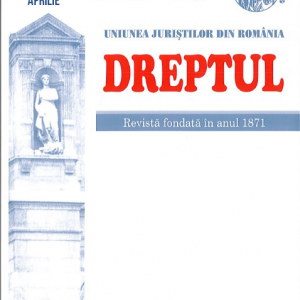 Pentru a fi în prezența unei încãlcãri a dreptului moral la respectarea operei, în sens larg, în conformitate cu art. 10 lit. d) din Legea nr. 8/1996, prejudiciul moral, indiferent de modalitatea în care este produs, trebuie sã constea în afectarea a înseși onoarei sau a reputației autorului, valori expres prevãzute de legiuitor. Așadar, nu este suficientã simpla atingere fizicã, fiind necesar ca aceasta sã fie de o anumitã consistențã și gravitate, astfel încât sã afecteze onoarea și reputația autorului, consecințã ce echivaleazã cu denaturarea viziunii artistice a autorului asupra operei sale.
Pentru a fi în prezența unei încãlcãri a dreptului moral la respectarea operei, în sens larg, în conformitate cu art. 10 lit. d) din Legea nr. 8/1996, prejudiciul moral, indiferent de modalitatea în care este produs, trebuie sã constea în afectarea a înseși onoarei sau a reputației autorului, valori expres prevãzute de legiuitor. Așadar, nu este suficientã simpla atingere fizicã, fiind necesar ca aceasta sã fie de o anumitã consistențã și gravitate, astfel încât sã afecteze onoarea și reputația autorului, consecințã ce echivaleazã cu denaturarea viziunii artistice a autorului asupra operei sale. -
 Modalitatea de dobândire a dreptului de proprietate asupra rețelei de distribuție a energiei electrice, prin edificare sau construire, pe un teren despre care reclamantul nu susține și nu dovedește că ar fi proprietatea sa, pentru a se putea prevala de accesiune și de prevederile art. 492 C.civ., nu se înscrie printre cele prevăzute de dispozițiile art. 644–649 C.civ. și nici de alte reglementări legale specifice domeniului de referință, pentru a dovedi calitatea de proprietar asupra respectivei rețele a unei persoane fizice care nu deține nici licență și nici capacitate energetică. În acest caz, pentru a putea reclama prerogativa de a-și exprima acordul la racordarea terților la rețeaua electrică, reclamantul trebuia, în lipsa oricărui titlu, să învestească instanța cu o acțiune în constatarea calității sale de proprietar asupra rețelei electrice, cu atât mai mult cu cât această calitate îi este contestată de partea adversă. (Înalta Curte de Casație și Justiție, Secția a II-a civilă, Decizia nr. 2476 din 27 iunie 2014)
Modalitatea de dobândire a dreptului de proprietate asupra rețelei de distribuție a energiei electrice, prin edificare sau construire, pe un teren despre care reclamantul nu susține și nu dovedește că ar fi proprietatea sa, pentru a se putea prevala de accesiune și de prevederile art. 492 C.civ., nu se înscrie printre cele prevăzute de dispozițiile art. 644–649 C.civ. și nici de alte reglementări legale specifice domeniului de referință, pentru a dovedi calitatea de proprietar asupra respectivei rețele a unei persoane fizice care nu deține nici licență și nici capacitate energetică. În acest caz, pentru a putea reclama prerogativa de a-și exprima acordul la racordarea terților la rețeaua electrică, reclamantul trebuia, în lipsa oricărui titlu, să învestească instanța cu o acțiune în constatarea calității sale de proprietar asupra rețelei electrice, cu atât mai mult cu cât această calitate îi este contestată de partea adversă. (Înalta Curte de Casație și Justiție, Secția a II-a civilă, Decizia nr. 2476 din 27 iunie 2014) -
 Faptul că, în cadrul acțiunii în revendicare promovate anterior intrării în vigoare a Legii nr. 10/2001, pârâții au invocat în apărare prevederile art. 45 alin. (2) din acest act normativ, precum și buna-credință de care ar fi dat dovadă la încheierea contractelor de vânzare-cumpărare, nu reprezenta un argument suficient pentru ca instanța să treacă la analiza fondului acestei apărări, după ce aceeași instanță stabilise că legea, în conținutul căreia se regăsește textul de care se prevalau pârâții, nu are incidență în cauză, având în vedere data promovării acțiunii și opțiunea reclamantei, de a continua judecata în condițiile dreptului comun, aspecte ce relevă caracterul contradictoriu al considerentelor hotărârii atacate, fiind astfel incidente dispozițiile art. 304 pct. 7 C.pr.civ.
Faptul că, în cadrul acțiunii în revendicare promovate anterior intrării în vigoare a Legii nr. 10/2001, pârâții au invocat în apărare prevederile art. 45 alin. (2) din acest act normativ, precum și buna-credință de care ar fi dat dovadă la încheierea contractelor de vânzare-cumpărare, nu reprezenta un argument suficient pentru ca instanța să treacă la analiza fondului acestei apărări, după ce aceeași instanță stabilise că legea, în conținutul căreia se regăsește textul de care se prevalau pârâții, nu are incidență în cauză, având în vedere data promovării acțiunii și opțiunea reclamantei, de a continua judecata în condițiile dreptului comun, aspecte ce relevă caracterul contradictoriu al considerentelor hotărârii atacate, fiind astfel incidente dispozițiile art. 304 pct. 7 C.pr.civ. -
 Sintagma „poate fi primit în profesie” folositã în art. 16 alin. (2) din Legea nr. 51/1995 privind organizarea și exercitarea profesiei de avocat conferã consiliilor barourilor – ca organe de conducere ale organizației profesionale – o competențã specialã, un drept de apreciere în legãturã cu primirea în profesie, cu scutire de examen, în cazul persoanelor enumerate limitativ de lege.
Sintagma „poate fi primit în profesie” folositã în art. 16 alin. (2) din Legea nr. 51/1995 privind organizarea și exercitarea profesiei de avocat conferã consiliilor barourilor – ca organe de conducere ale organizației profesionale – o competențã specialã, un drept de apreciere în legãturã cu primirea în profesie, cu scutire de examen, în cazul persoanelor enumerate limitativ de lege. -
 Cerința interesului de a fi actual trebuie îndeplinitã pe tot parcursul procesului, iar nu numai la momentul introducerii acțiunii. Astfel, în cazul în care pe parcursul procesului acțiunea promovatã de reclamant rãmâne fãrã interes, demersul procesual, inițial justificat, rãmâne fãrã o finalitate practicã din punct de vedere juridic, soluția consacratã jurisprudențial în atare situații fiind aceea a respingerii acțiunii ca rãmasã fãrã interes (Înalta Curte de Casație și Justiție, Secția comercialã, decizia nr. 2623 din 13 septembrie 2011).
Cerința interesului de a fi actual trebuie îndeplinitã pe tot parcursul procesului, iar nu numai la momentul introducerii acțiunii. Astfel, în cazul în care pe parcursul procesului acțiunea promovatã de reclamant rãmâne fãrã interes, demersul procesual, inițial justificat, rãmâne fãrã o finalitate practicã din punct de vedere juridic, soluția consacratã jurisprudențial în atare situații fiind aceea a respingerii acțiunii ca rãmasã fãrã interes (Înalta Curte de Casație și Justiție, Secția comercialã, decizia nr. 2623 din 13 septembrie 2011). -
 Drept penal și procesual penal CERERE PRIVIND SESIZAREA CURȚII DE JUSTIȚIE A UNIUNII EUROPENE PENTRU PRONUNȚAREA UNEI HOTÃRÂRI PRELIMINARE. INADMISIBILITATE. În conformitate cu dispozițiile art. 267 paragr. 1 lit. a) si b) din Tratatul privind funcționarea Uniunii Europene, Curtea de Justiție a Uniunii Europene este competentã sã se pronunþe, cu titlu preliminar, cu privire la: a) interpretarea tratatelor și b) validitatea și interpretarea actelor adoptate de instituțiile, organele, oficiile sau agențiile Uniunii. Prin urmare, cererea privind sesizarea Curții de Justiție a Uniunii Europene pentru pronunțarea unei hotãrâri preliminare, referitoare la interpretarea unui act al Consiliului Europei, cum este Convenția penalã privind corupþia, adoptatã la Strasbourg la 27 ianuarie 1999, iar nu a unui tratat al Uniunii Europene sau act al instituțiilor, organelor, oficiilor sau agențiilor Uniunii Europene, este inadmisibilã.
Drept penal și procesual penal CERERE PRIVIND SESIZAREA CURȚII DE JUSTIȚIE A UNIUNII EUROPENE PENTRU PRONUNȚAREA UNEI HOTÃRÂRI PRELIMINARE. INADMISIBILITATE. În conformitate cu dispozițiile art. 267 paragr. 1 lit. a) si b) din Tratatul privind funcționarea Uniunii Europene, Curtea de Justiție a Uniunii Europene este competentã sã se pronunþe, cu titlu preliminar, cu privire la: a) interpretarea tratatelor și b) validitatea și interpretarea actelor adoptate de instituțiile, organele, oficiile sau agențiile Uniunii. Prin urmare, cererea privind sesizarea Curții de Justiție a Uniunii Europene pentru pronunțarea unei hotãrâri preliminare, referitoare la interpretarea unui act al Consiliului Europei, cum este Convenția penalã privind corupþia, adoptatã la Strasbourg la 27 ianuarie 1999, iar nu a unui tratat al Uniunii Europene sau act al instituțiilor, organelor, oficiilor sau agențiilor Uniunii Europene, este inadmisibilã. -
 Potrivit prevederilor art. 6 alin. (4) C.civ., prescripțiile, decăderile și uzucapiunile începute și neîmplinite la data intrării în vigoare a legii noi sunt în întregime supuse dispozițiilor legale care le-au instituit, iar potrivit art. 204 din Legea nr. 71/2011 dispozițiile art. 2539 alin. (2) teza a II-a C.civ. se aplică și în cazul cererii de chemare în judecată sau de arbitrare introduse după intrarea în vigoare a Codului civil. Conform art. 2539 alin. (2) C.civ., prescripția nu este întreruptă dacă cel care a făcut cererea de chemare în judecată sau de arbitrare ori de intervenție în procedura insolvenței sau a urmăririi silite a renunțat la ea, nici dacă cererea a fost respinsă, anulată ori s-a perimat printr-o hotărâre rămasă definitivă. Cu toate acestea, dacă reclamantul, în termen de 6 luni de la data când hotărârea de respingere sau de anulare a rămas definitivă, introduce o nouă cerere, prescripția este considerată întreruptă prin cererea de chemare în judecată sau de arbitrare precedentă, cu condiția însă ca noua cerere să fie admisă.
Potrivit prevederilor art. 6 alin. (4) C.civ., prescripțiile, decăderile și uzucapiunile începute și neîmplinite la data intrării în vigoare a legii noi sunt în întregime supuse dispozițiilor legale care le-au instituit, iar potrivit art. 204 din Legea nr. 71/2011 dispozițiile art. 2539 alin. (2) teza a II-a C.civ. se aplică și în cazul cererii de chemare în judecată sau de arbitrare introduse după intrarea în vigoare a Codului civil. Conform art. 2539 alin. (2) C.civ., prescripția nu este întreruptă dacă cel care a făcut cererea de chemare în judecată sau de arbitrare ori de intervenție în procedura insolvenței sau a urmăririi silite a renunțat la ea, nici dacă cererea a fost respinsă, anulată ori s-a perimat printr-o hotărâre rămasă definitivă. Cu toate acestea, dacă reclamantul, în termen de 6 luni de la data când hotărârea de respingere sau de anulare a rămas definitivă, introduce o nouă cerere, prescripția este considerată întreruptă prin cererea de chemare în judecată sau de arbitrare precedentă, cu condiția însă ca noua cerere să fie admisă. -
 Prevederile art. 970 alin. 2 C.civ. obligă părțile să execute cu bună-credință nu numai clauzele expres stipulate în convenție, ci și pe toate cele la care obligă echitatea, obiceiul sau legea, după natura obligației. Astfel, în lipsa unei reglementări specifice antecontractului de vânzarecumpărare, dispozițiile alin. 2 al art. 970 C.civ. permit aplicarea dispozițiilor legale incidente vânzării perfecte unui antecontract, întrucât scopul urmărit de părțile din antecontract este încheierea unui contract numit, de vânzare-cumpărare, cu reglementare specială în Codul civil, iar conduita contractuală a părților trebuie să vizeze îndeplinirea tuturor obligațiilor specifice acestui contract numit.
Prevederile art. 970 alin. 2 C.civ. obligă părțile să execute cu bună-credință nu numai clauzele expres stipulate în convenție, ci și pe toate cele la care obligă echitatea, obiceiul sau legea, după natura obligației. Astfel, în lipsa unei reglementări specifice antecontractului de vânzarecumpărare, dispozițiile alin. 2 al art. 970 C.civ. permit aplicarea dispozițiilor legale incidente vânzării perfecte unui antecontract, întrucât scopul urmărit de părțile din antecontract este încheierea unui contract numit, de vânzare-cumpărare, cu reglementare specială în Codul civil, iar conduita contractuală a părților trebuie să vizeze îndeplinirea tuturor obligațiilor specifice acestui contract numit. -
 Obligaþia celui care a edificat o construcþie pe terenul altuia de a o ridica la solicitarea proprietarului terenului are caracter civil, în condiþiile în care pãrþile nu au dovedit cã respectiva obligaþie ar avea în vedere un fapt obiectiv de comerþ cuprins în obiectul de activitate al vreuneia dintre ele pentru a fi incidente dispoziþiile art. 3 sau cele ale art. 56 C.com. ºi nici cã prin voinþa lor obligaþia de a face în discuþie ar fi dobândit o naturã comercialã, aºa cum prevede art. 4 C.com. (Înalta Curte de Casaþie ºi Justiþie, Secþia comercialã, decizia nr. 1448 din 14 mai 2009).
Obligaþia celui care a edificat o construcþie pe terenul altuia de a o ridica la solicitarea proprietarului terenului are caracter civil, în condiþiile în care pãrþile nu au dovedit cã respectiva obligaþie ar avea în vedere un fapt obiectiv de comerþ cuprins în obiectul de activitate al vreuneia dintre ele pentru a fi incidente dispoziþiile art. 3 sau cele ale art. 56 C.com. ºi nici cã prin voinþa lor obligaþia de a face în discuþie ar fi dobândit o naturã comercialã, aºa cum prevede art. 4 C.com. (Înalta Curte de Casaþie ºi Justiþie, Secþia comercialã, decizia nr. 1448 din 14 mai 2009). -
 Obligația celui care a edificat o construcție pe terenul altuia de a o ridica la solicitarea proprietarului terenului are caracter civil, în condițiile în care pãrțile nu au dovedit cã respectiva obligație ar avea în vedere un fapt obiectiv de comerț cuprins în obiectul de activitate al vreuneia dintre ele pentru a fi incidente dispozițiile art. 3 sau cele ale art. 56 C.com. și nici cã prin voința lor obligația de a face în discuție ar fi dobândit o naturã comercialã, așa cum prevede art. 4 C.com. (Înalta Curte de Casație și Justiție, Secția comercialã, decizia nr. 1448 din 14 mai 2009).
Obligația celui care a edificat o construcție pe terenul altuia de a o ridica la solicitarea proprietarului terenului are caracter civil, în condițiile în care pãrțile nu au dovedit cã respectiva obligație ar avea în vedere un fapt obiectiv de comerț cuprins în obiectul de activitate al vreuneia dintre ele pentru a fi incidente dispozițiile art. 3 sau cele ale art. 56 C.com. și nici cã prin voința lor obligația de a face în discuție ar fi dobândit o naturã comercialã, așa cum prevede art. 4 C.com. (Înalta Curte de Casație și Justiție, Secția comercialã, decizia nr. 1448 din 14 mai 2009). -
 Dreptul larg de apreciere al autoritãţii administrative asupra punerii în executare a unor dispoziţii legale face ca neemiterea de cãtre respectiva autoritate a actului administrativ de punere în executare a dispoziţiilor de lege în cauzã sã nu constituie refuz nejustificat, în sensul art. 2 alin. (1) lit. i) din Legea nr. 554/2004. Este nelegalã, astfel, obligarea Guvernului României la emiterea unei hotãrâri prin care salariaţilor Societãţii Naţionale a Petrolului „Petrom” S.A. Bucureşti sã le fie vândute direct acţiuni ale acestei societãţi în limita a 8% din capitalul social în condiţiile art. 9 alin. (2) din anexa la O.U.G. nr. 49/1997 astfel cum a fost modificat prin art. V pct. 2 din O G. nr. 55/2003, având în vedere faptul cã prin acelaşi text legal legiuitorul a înţeles sã confere Guvernului un drept cu limite foarte largi de apreciere în ceea ce priveşte cota procentualã ce urmeazã a fi achiziţionatã de salariaţi şi momentele la care se va realiza achiziţionarea acţiunilor de cãtre aceştia.
Dreptul larg de apreciere al autoritãţii administrative asupra punerii în executare a unor dispoziţii legale face ca neemiterea de cãtre respectiva autoritate a actului administrativ de punere în executare a dispoziţiilor de lege în cauzã sã nu constituie refuz nejustificat, în sensul art. 2 alin. (1) lit. i) din Legea nr. 554/2004. Este nelegalã, astfel, obligarea Guvernului României la emiterea unei hotãrâri prin care salariaţilor Societãţii Naţionale a Petrolului „Petrom” S.A. Bucureşti sã le fie vândute direct acţiuni ale acestei societãţi în limita a 8% din capitalul social în condiţiile art. 9 alin. (2) din anexa la O.U.G. nr. 49/1997 astfel cum a fost modificat prin art. V pct. 2 din O G. nr. 55/2003, având în vedere faptul cã prin acelaşi text legal legiuitorul a înţeles sã confere Guvernului un drept cu limite foarte largi de apreciere în ceea ce priveşte cota procentualã ce urmeazã a fi achiziţionatã de salariaţi şi momentele la care se va realiza achiziţionarea acţiunilor de cãtre aceştia. -
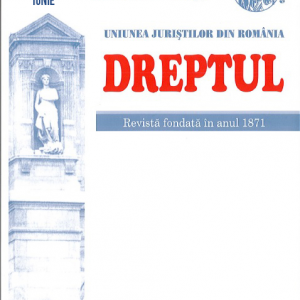 Transmiterea actului administrativ sancționator prin fax îndeplinește, în principiu, rigorile procedurale referitoare la comunicare, aceasta putând fi circumscrisã modalitãții la care se referã art. 86 alin. (3) teza finalã din Codul de procedurã civilã: „alte mijloace ce asigurã transmiterea textului actului și confirmarea primirii acestuia”.
Transmiterea actului administrativ sancționator prin fax îndeplinește, în principiu, rigorile procedurale referitoare la comunicare, aceasta putând fi circumscrisã modalitãții la care se referã art. 86 alin. (3) teza finalã din Codul de procedurã civilã: „alte mijloace ce asigurã transmiterea textului actului și confirmarea primirii acestuia”. -
 Raportul de evaluare întocmit de inspectorul de integritate în temeiul dispozițiilor art. 17 din Legea nr. 176/2010 privind integritatea în exercitarea funcțiilor și demnităților publice, ca parte a procedurii privind activitatea de evaluare a averii, nu se poate contesta direct la instanța de contencios administrativ, el neavând trăsăturile unui act administrativ, întrucât nu produce efecte juridice prin el însuși. Acest raport constituie un simplu act de sesizare al Comisiei de cercetare a averilor prevăzute în Legea nr. 115/1996, ce poate fi contestat în fața instanței de contencios administrativ doar odată cu actul de finalizare a procedurii desfășurate de această comisie.
Raportul de evaluare întocmit de inspectorul de integritate în temeiul dispozițiilor art. 17 din Legea nr. 176/2010 privind integritatea în exercitarea funcțiilor și demnităților publice, ca parte a procedurii privind activitatea de evaluare a averii, nu se poate contesta direct la instanța de contencios administrativ, el neavând trăsăturile unui act administrativ, întrucât nu produce efecte juridice prin el însuși. Acest raport constituie un simplu act de sesizare al Comisiei de cercetare a averilor prevăzute în Legea nr. 115/1996, ce poate fi contestat în fața instanței de contencios administrativ doar odată cu actul de finalizare a procedurii desfășurate de această comisie. -
 Acþiunea în daune-interese care vizeazã antrenarea rãspunderii civile delictuale a AVAS în temeiul art. 998-999 C.civ. nu atrage aplicarea dispoziþiilor legii speciale cu privire la competenþa curþii de apel în primã instanþã, ci a celor ale art. 1 pct. (1) lit. a) C.pr.civ., fiind vorba despre un litigiu patrimonial (Înalta Curte de Casaþie ºi Justiþie, Secþia comercialã, decizia nr. 1896 din 21 mai 2010).
Acþiunea în daune-interese care vizeazã antrenarea rãspunderii civile delictuale a AVAS în temeiul art. 998-999 C.civ. nu atrage aplicarea dispoziþiilor legii speciale cu privire la competenþa curþii de apel în primã instanþã, ci a celor ale art. 1 pct. (1) lit. a) C.pr.civ., fiind vorba despre un litigiu patrimonial (Înalta Curte de Casaþie ºi Justiþie, Secþia comercialã, decizia nr. 1896 din 21 mai 2010).
